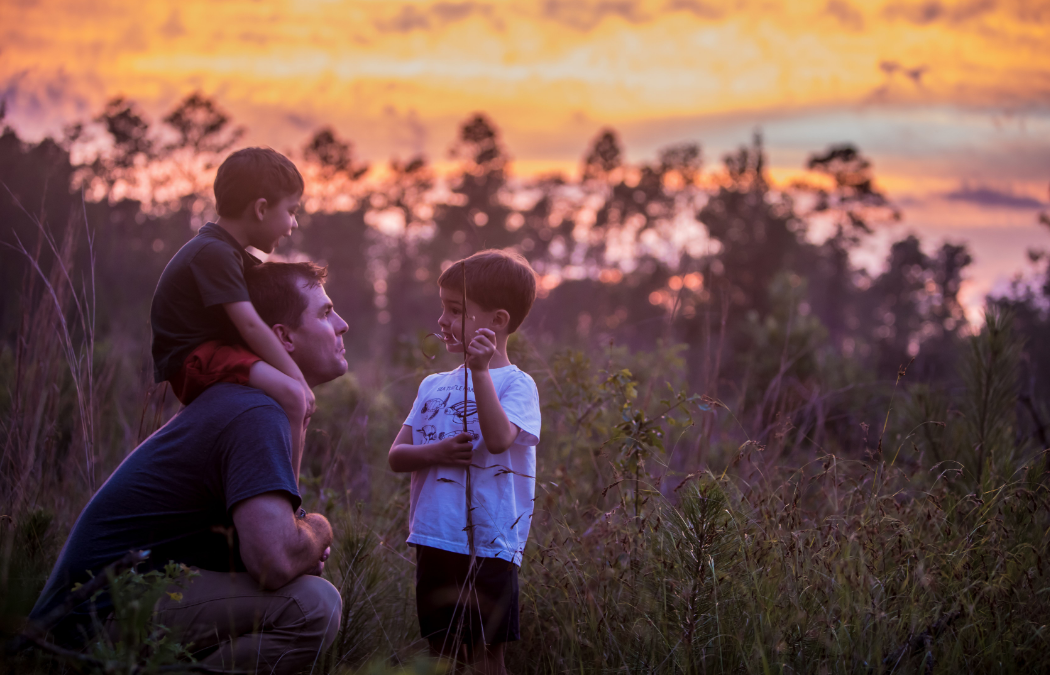Blood Origins, a non-profit which strives to bridge a dialogue between hunters and non-hunters, was born from the simple yet deeply personal question: Why do I hunt?
Robbie Kroger is a South African native now living in Mississippi with his family. His Blood Origins non-profit has become a significant signpost in the world of hunting, helping bridge a narrative between hunters and non-hunters through sometimes challenging and tough conversations. He sat down with Chris Dorsey to share his thoughts on several difficult and oftentimes controversial topics facing hunters and hunting. His interview can be heard here. Too, Chris Dorsey joined Robbie’s Blood Origins podcast and the two tackled a wide range of issues facing the world of hunting and conservation with rare candor. That interview can be heard here.
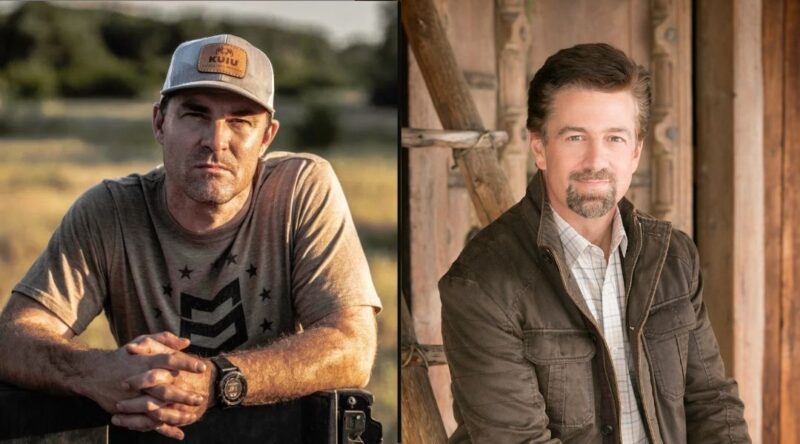
by Robert Kröger – Founder, Blood Origins
No matter your personality or background, an innate desire to learn more about why you are the way you are exists within most of us. It’s introspection, a desire to dig deep within yourself and your past to determine what makes you tick the way that you do. This is especially true when it comes to hunting and your love for the outdoors.
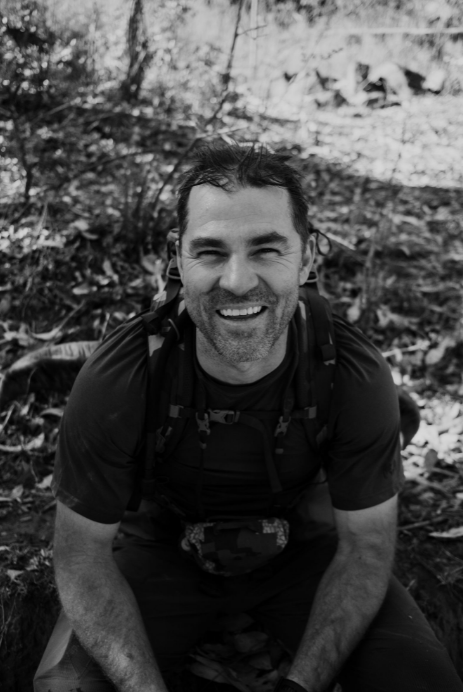 Unlike a traditional background where fathers, grandfathers, mothers and grandmothers handed down generations of stories, hunting areas and even weapons, my story is a little different. I had everything of the hunting life given to me…all but the personal experience of it. I was surrounded by the trophies, the stories and even a letter from my paternal grandfather informing me that hunting was “in my blood.” I feel like my heritage was ingrained in the outdoors. On one side, I came from a family that was fiercely protective of a conservation heritage. I was descended from the inaugural forester of the Sachsenwald in Northern Germany, the initial nature preserve of its kind. My family were the first guardians of the forest and its creatures. They worked to ensure sustainability and maximize harvest. The other side of my family consisted of hunter-gatherers, in some cases not by choice, but by necessity. Some from that side of the family also went on to hunt the far reaches of the world–from the Siberian taiga to the African savanna of Mozambique. One particular grandfather was even privileged to have hunted with some well-known names in hunting history, greats like Fred Bear and Robert Ruark. I even recall him one evening reminiscing about one of those hunts and telling me, “You remember Camp Ruark from that story? That’s the camp where Robert came and hunted with us.”
Unlike a traditional background where fathers, grandfathers, mothers and grandmothers handed down generations of stories, hunting areas and even weapons, my story is a little different. I had everything of the hunting life given to me…all but the personal experience of it. I was surrounded by the trophies, the stories and even a letter from my paternal grandfather informing me that hunting was “in my blood.” I feel like my heritage was ingrained in the outdoors. On one side, I came from a family that was fiercely protective of a conservation heritage. I was descended from the inaugural forester of the Sachsenwald in Northern Germany, the initial nature preserve of its kind. My family were the first guardians of the forest and its creatures. They worked to ensure sustainability and maximize harvest. The other side of my family consisted of hunter-gatherers, in some cases not by choice, but by necessity. Some from that side of the family also went on to hunt the far reaches of the world–from the Siberian taiga to the African savanna of Mozambique. One particular grandfather was even privileged to have hunted with some well-known names in hunting history, greats like Fred Bear and Robert Ruark. I even recall him one evening reminiscing about one of those hunts and telling me, “You remember Camp Ruark from that story? That’s the camp where Robert came and hunted with us.”
But Why Hunt?
For me, however, I didn’t experience what hunting was until I came to the United States to complete a PhD. It was only here that I had the opportunity to explore my roots as a hunter and the why behind my growing passion for this way of life. As part of my evolution–like many hunters–I wanted to understand how I was going to communicate the reason that I hunted, the why behind the hunt, so that I could explain it to my own kids. How could I communicate why I killed something when I didn’t fully comprehend all the reasons myself, I wondered? Blood Origins, then, was born from the simple yet deeply personal question that I asked myself: Why do I hunt?
I then searched for truly reflective content that communicated the motivations and reasons behind hunting to the non-hunting public. In the process, I discovered that there was very little meaningful dialogue between our communities. Thus, Blood Origins may have been built selfishly for me to try and understand complex questions that are inherent to hunting, but it evolved to serve a greater purpose, one where we now strive to bridge a dialogue between hunters and non-hunters. Who we are and what we represent is now being communicated to non-hunters through all manner of channels and platforms. Yes, hunters (like myself) get to hear from our brethren about their reasons for hunting, but non-hunters who have never met a hunter, and who drive decisions at ballot boxes, now have a means of understanding hunting and the conservation that comes with it from authentic voices in our community.
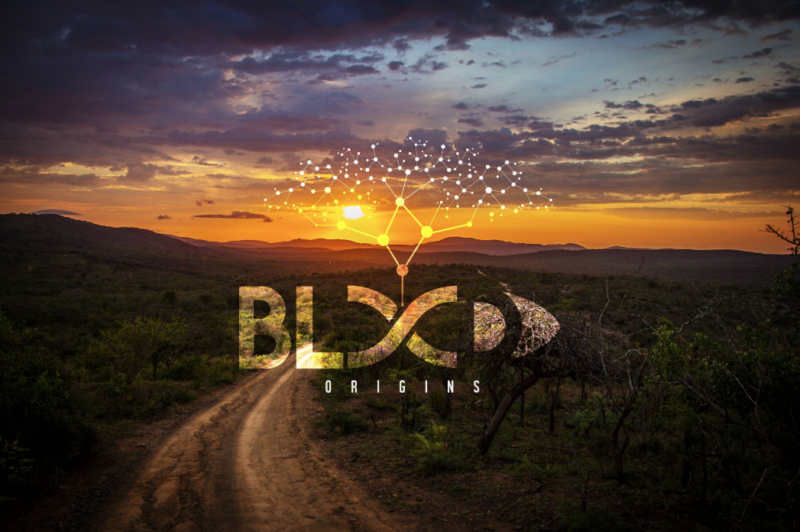
Now, allow me to pose a question to you: When did you last stop, just for a moment, and examine the truth of your own hunting existence? Hunting in America is a legacy provided by your forefathers–both familial and kindred–and is a defining element of the unique American spirit. A heritage of hunting has been afforded to everyone because of what was put in place by American forefathers who are the architects of sustainable hunting and conservation. Theodore Roosevelt, famous sportsman and naturalist, understood this heritage when he said, “There are no words that can tell the hidden spirit of the wilderness, that can reveal its mystery, its melancholy and its charm.” This is what Blood Origins aims to protect through its mission to convey the truth about hunting. We work each day to amplify the many redeeming qualities of hunting by allowing hunters to simply speak from their hearts, celebrating their passion and showcasing their true motivations for hunting. We fight every single day to change perceptions of the consequences of hunting and the benefits to wildlife and people across the globe–financial, physical and spiritual.
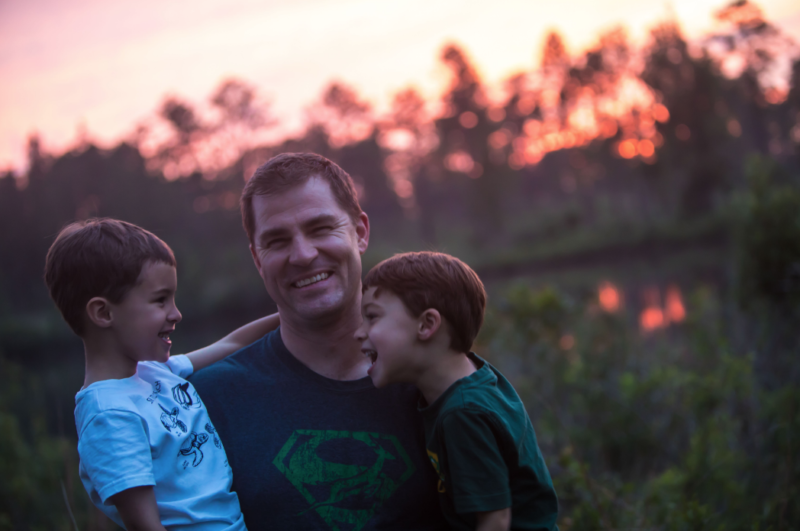
Ultimately, Blood Origins is about protecting what you love, so that your kids–and mine–are able to share in the existence that has meant so much to us as hunters since time immemorial.
Editor’s Note: Blood Origins is a 501(c)3 non-profit that is now reaching tens of thousands of hunters and non-hunters through myriad platforms. If you wish to support them with a tax-deductible contribution, visit: www.bloodorigins.org/supporter-program.
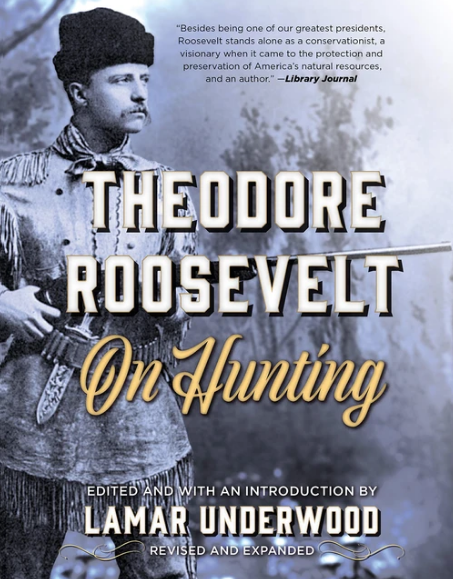 Of Roosevelt’s many volumes of hunting and exploration, two reader favorites have always been Ranch Life and the Hunting Trail and African Game Trails, both excerpted here. During his ranching years, Roosevelt ranged far and wide, and his African trips were also famously bold. In all his expeditions, Roosevelt reveals in detail hunts that were incredible journeys of both pursuit and discovery, for wherever he went in the outdoors he assumed the dual roles of hunter and naturalist.
Of Roosevelt’s many volumes of hunting and exploration, two reader favorites have always been Ranch Life and the Hunting Trail and African Game Trails, both excerpted here. During his ranching years, Roosevelt ranged far and wide, and his African trips were also famously bold. In all his expeditions, Roosevelt reveals in detail hunts that were incredible journeys of both pursuit and discovery, for wherever he went in the outdoors he assumed the dual roles of hunter and naturalist.
The hunts range from upland birds and waterfowl to prized big game animals like elk, bear, and sheep amid lofty peaks. There are goat pursuits among ice-glazed mountain spires and close encounters with grizzlies in the black timber. He survives lion charges and buffalo attacks, and stumbles on elephants. From the peaks and plains of the American West, to the vast and mysterious East African game fields and forests, Roosevelt shares his experiences and observations in irresistible prose. Shop Now

